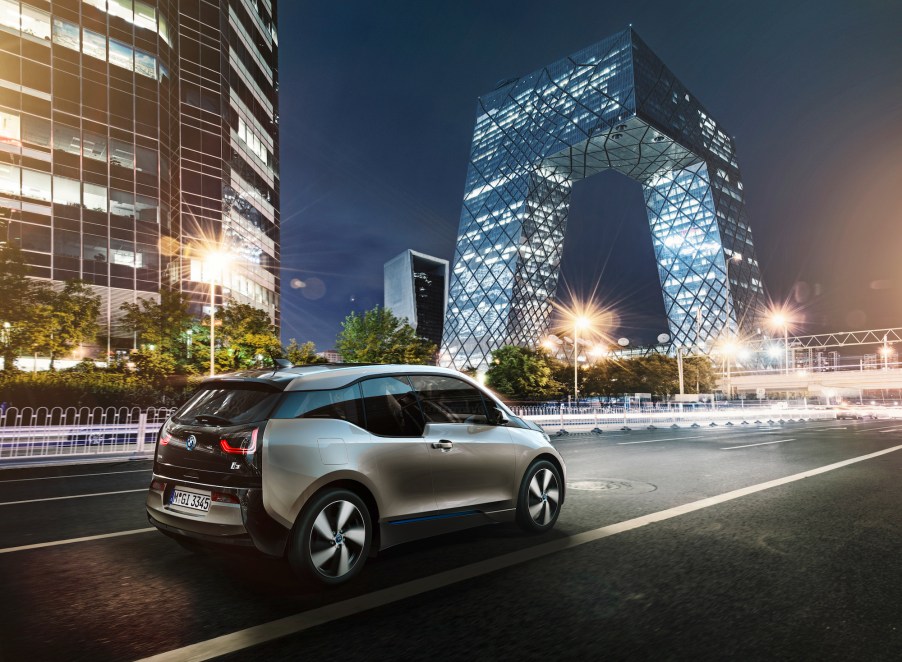
The 2021 BMW i3 Doesn’t Actually Go That Far
Electric cars are the future, and almost every automaker is pursuing that technology. One of them is BMW. And though it makes fast and luxurious EVs, it also makes smaller and more practical EVs. One of those is the compact BMW i3. However, it isn’t as practical as it may want to be.
The BMW i3: Short range for a small car
At the end of the day, the BMW i3 is a compact car, seating only four people, U.S. News reports. So compared to a typical BMW, it’s not equipped with a potent powertrain by any means. The standard i3 comes with an electric motor paired with a 42.2-kWh battery pack. This setup produces 168 hp and 184 lb-ft of torque.
As expected, that small battery gives the i3 an EPA-estimated range of only 153 miles, U.S. News reports. That might be enough range for city driving, but it won’t be enough for many people. That’s why BMW offers an option to extend the range by adding a tiny gas engine to the i3.
The i3 REX gets the same powertrain plus a 0.6-liter two-cylinder gas-powered engine. This essentially turns the i3 into a hybrid car, and it can get a modest power boost out of it too. U.S. News reports that though the regular i3 won’t see a change in its power specs due to that little engine, the i3s will get a total of 181 hp and 191 lb-ft of torque from that hybrid powertrain. Furthermore, that little gas engine boosts the i3’s range to an EPA-estimated 200 miles, U.S. News says.
But the 2021 BMW i3 costs a pretty penny
Despite its lackluster range, the BMW i3 isn’t cheap or affordable. It starts at about $44,000. To be fair to the i3, because it’s an EV, it’s eligible for tax credits that will offset the purchase price.
However, as many EV fans may know, plenty of good EVs cost considerably less than the i3. For example, the Tesla Model 3, which starts around $37,000, can get well over 200 miles of range on its battery pack.
To even hit the 200-mile mark, i3 owners would need to pay a premium for that little gas engine. A standard i3 with that gas engine starts at just over $48,000. That makes the price difference between the BMW and the Tesla even starker.
How the 2021 i3 tries to make up for its flaws
With that being said, BMW isn’t dumb. It knows not all customers want to pay over $40,000 for a small EV with less range than some of its most notable competitors. That’s why BMW is trying to impress by giving the i3 a nicer interior.
For instance, BMW gave the i3 a “cabin filled with environmentally friendly flourishes,” U.S. News reports. Those touches should appeal to eco-conscious consumers who might end up driving around in an i3.
Additionally, despite its small stature, the BMW i3 boasts a decent amount of cargo space for a compact car. U.S. News reports it gets a max of 36.9 cubic feet of cargo capacity when its rear seats are folded down. The i3 also comes with heated front seats as standard. Convenience features such as automatic climate control and a navigation system are also standard.



